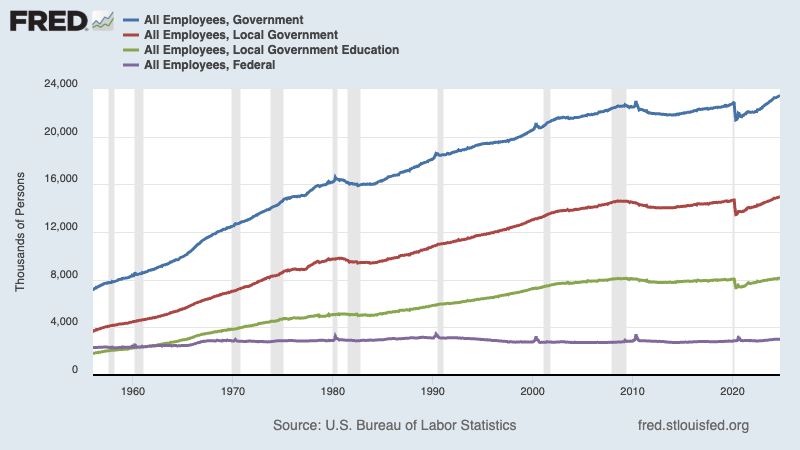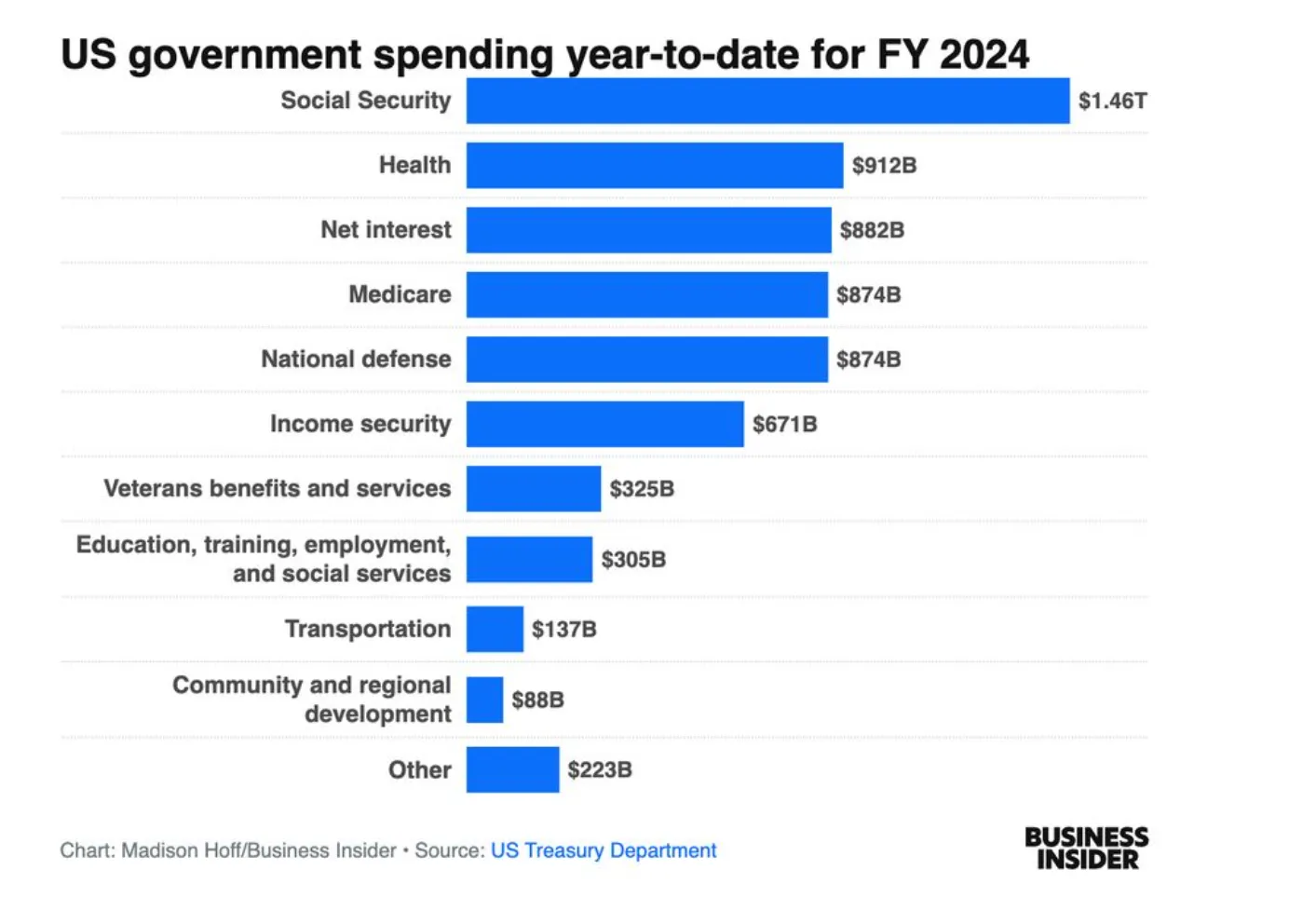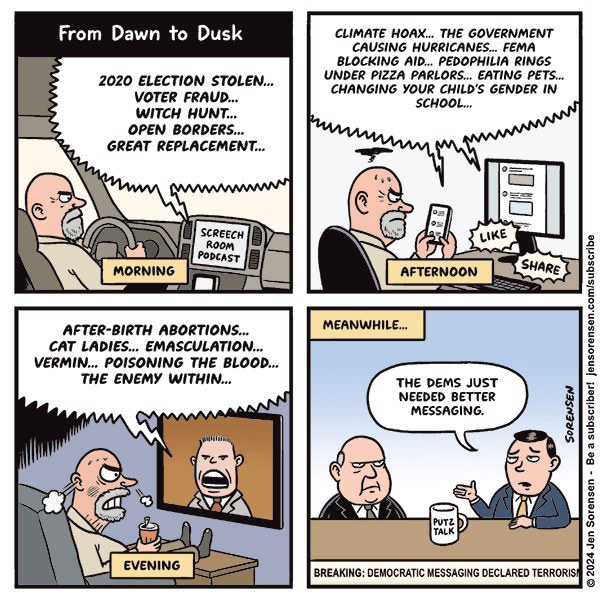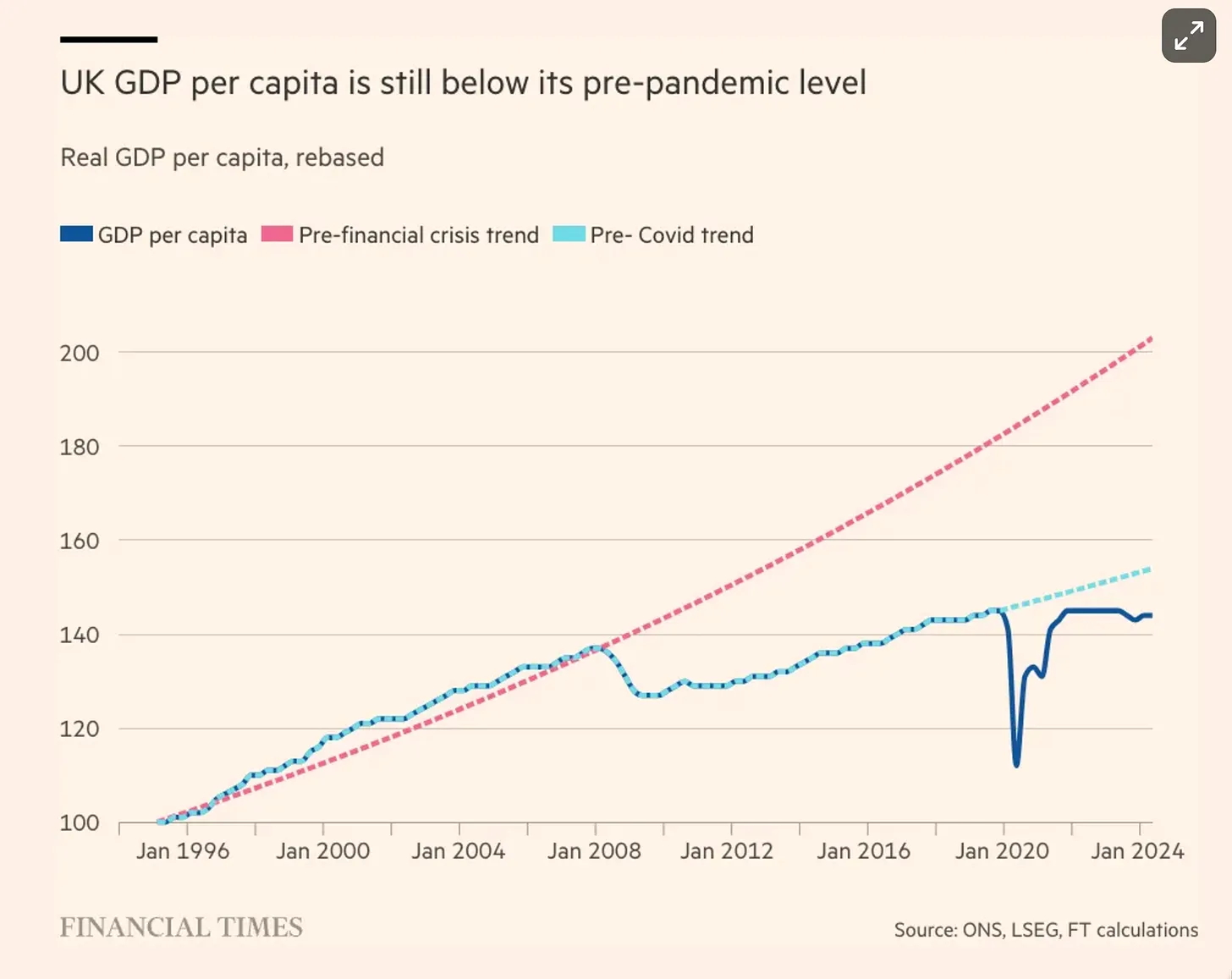Can you read this graffiti?
Can you decode this information?
Can you work out what they're saying to you?
Can you read the signs yet?
Can you feel the real intention?
Can you discern the subtle meaning?
Can you see all the implications?
Can you read the signs yet?
- Shriekback, "Signs" (1992)
This week's featured post is "Should Democrats Abandon the Trans Community?".
This week everybody was talking about Matt Gaetz

Thursday, Matt Gaetz withdrew from consideration as attorney general. This is worth celebrating in its own right, but also for a larger reason: It shows that Trump isn't a dictator yet. Or, as Amanda Marcotte puts it: Resistance is not futile.
The nomination battles are all part of a larger question: Now that the Republicans have a Senate majority -- 53-47 after Bob Casey's concession in Pennsylvania -- will the Senate continue to be an independent branch of government? During the Biden administration (or any previous American administration of either party) the answer was obviously Yes. How many times, for example, did Biden have to negotiate with Joe Manchin or Kyrsten Sinema to get some part of his program passed? He couldn't simply demand that they get into line.
But MAGA is an authoritarian movement with no principles beyond whatever its Leader wants. It dominates the Republican Party, so it's an open question whether the GOP has also become an authoritarian movement. Many claim that it has, and that if you were elected as a Republican, you were elected to obey Trump. Last week, Texas Congressman Troy Nehls said as much:
If Donald Trump says "jump 3 feet high and scratch your head." We all jump 3 feet high and scratch our heads.
I can't picture Joe Manchin doing that for Biden.
Come January, Republicans will control the Senate, so has the Senate also been assimilated into Trump's authoritarian machine? Trump's cabinet nominations, the worst of which I discussed last week, have raised that question: If the Leader can make you agree that Matt Gaetz should be the top American law enforcement officer, or approve RFK Jr. as the primary shaper of federal health policy, what can't he make you do?
For the moment, at least, the answer seems to be that the Senate will retain some limited amount of independence. We got a hint of that on November 13, when the Republican Senate caucus elected John Thune as majority leader, rather than Trump's choice Rick Scott. The Gaetz withdrawal (in the face of repeated leaks about orgies where underage girls were paid to participate) is a second sign. Trump was apparently unable to make senators repeat Gaetz's denials and continue supporting him.
Admittedly, that's a low bar. But it establishes that there IS a limit -- something we didn't know a week ago. What happens to the rest of Trump's nominees will give us a better idea where that limit is.
The NYT's Michelle Cottle warns that this is just the beginning:
[Trump's] M.O. is to relentlessly pressure-test people and institutions. Those who don’t crumble at first are hit again. And again. The goal is to shatter the resisters’ spines, one vertebra at a time if necessary, so that they don’t just bow before him but rather collapse in a gelatinous blob. Like, say, former Speaker Kevin McCarthy.
A related point that I hope Republican senators bear in mind: You can never prove your loyalty once and for all. Whatever you offer, he will keep asking for more. If you have any line you won't cross, he will eventually try to push you past it -- and reject you if you hold, as he did with Mike Pence. No VP was ever more loyal than Pence, but it wasn't enough. There is no "enough".
Former GOP presidential candidate Nikki Haley has no current position and no direct power, but I think it's meaningful that she criticized both DNI nominee Tulsi Gabbard and HHS nominee RFK Jr. on her radio show. Ultimately, I doubt her resistance will amount to much, but she is demonstrating that Republicans do not automatically have to bend the knee to whatever Trump does.
Trump wasted no time naming a new AG nominee: Pam Bondi. There is things not to like about her as well, but at least she has some qualifications: 20 years as a prosecutor and 8 years as Florida's attorney general. We can hope she doesn't have Gaetz-level baggage.
Trump wants his AG is to make the Department of Justice into the partisan weapon he has falsely claimed it was under Biden. (Every DoJ investigation of Trump began with probable cause, and the indictments against him were well supported with evidence. I will have no problems with Bondi investigating or indicting Trump's rivals or critics if she upholds those standards.) The question to raise with Bondi is how she will respond when her President tweets that so-and-so should be in jail, as he often does.
The signs on this issue are not good. In 2023, Bondi said on Fox News:
At DoJ, the prosecutors will be prosecuted -- the bad ones. The investigators will be investigated.
Joyce Vance suggests another question: Did Trump lose the 2020 election?
Unless her answer is yes, the Senate must reject her nomination. You can't be an election denier & the attorney general.
Trump's "landslide" win continues to shrink. He got less than half the popular vote.
Trump still hasn't signed the documents that officially begin the transition process. That would unlock federal funding, allow Biden officials to share sensitive information with their prospective replacements, and let the FBI begin background investigations of Trump's appointees.
What's the holdup? Transparency. Trump would have to reveal who's been funding his transition efforts to date, and would open his incoming administration to conflict-of-interest considerations.
The night before Gaetz withdrew, a panel on MSNBC's "The 11th Hour" discussed the most recent sexual revelations and how Gaetz's nomination probably wasn't tenable any more. One panelist said, "I do agree. He will probably have to pull out. Excuse me, that's a bad choice of words."
The panel erupted into laughter and host Stephanie Ruhle quickly went to commercial.
and whether Democrats should abandon the trans community
That's covered in the featured post. Spoiler: I think not.
and Netanyahu's indictment
From Vox:
The International Criminal Court (ICC) has formally issued arrest warrants for Israeli Prime Minister Benjamin Netanyahu, former Israeli Defense Minister Yoav Gallant, and Hamas military chief Mohammed Deif for war crimes and crimes against humanity. ... The warrants accuse Gallant and Netanyahu of violating the laws of international armed conflict by intentionally depriving civilians in Gaza of “food, water, and medicine and medical supplies, as well as fuel and electricity” by consistently blocking humanitarian aid into Gaza. They also accuse both men of intentionally directing attacks against civilians in Gaza in at least two instances. Deif is also accused of war crimes and crimes against humanity including murder, torture, and sexual violence.
Naturally, Israel is not going to turn its own government officials over to the ICC for trial, and Deif may not even be alive. So the immediate effect is more of a nuisance than a threat: Any time he wants to travel outside Israel, Netanyahu will have to make sure that the countries he passes through aren't planning to arrest him. 124 countries are treaty-bound to arrest him, though some have announced they won't. The US has never officially recognized the ICC, and President Biden has called the indictment "outrageous", so Netanyahu should be safe to come here. (If his plane has to make an emergency landing in the EU or Canada, though, there could be a problem.)
The warrants against Netanyahu and Gallant could also complicate weapons transfers from European states and nations with laws limiting transfers in situations in which there’s credible reason to believe a country will use them to commit atrocities.
“We’ve already seen a Dutch court saying that the Netherlands cannot send fighter jet [parts], for example, to Israel. We’ve seen the termination or expiration of various arms contracts that the UK had,” said Kelebogile Zvobgo, professor of government at the College of William & Mary.
and the federal budget
Elon Musk's DOGE is about to barrage us with disinformation about federal spending. Paul Krugman pre-bunks a bunch of it with the following graph, showing that federal employment has not significantly increased since the 1950s. (Those little blips at 10-year-intervals must be census employees.)

Don Moynihan covers some of the same information, and notes that the entire federal civilian payroll is about $271 billion per year. So firing all of them would be just a drop in the bucket on the way to the $2 trillion annual savings Musk is promising. Moynihan then explains what the government does spend money on.

Where do you think Musk can find his $2 trillion, if not in Social Security, Medicare, defense, and interest we owe on existing debt?
Elon has started identifying individual government workers for harassment.
We're also going to be hearing a lot of nonsense about taxes in the coming months, as Congress deals with the expiration of the tax cuts from Trump's first term. Here's some nonsense Don Jr. retweeted:
Replace the US tax code's 7000 pages and millions of word with a simple flat tax. It could fit into a few pages of simple English, making paying taxes simple and enforcement even simpler.
I'm guessing that neither Don Jr. nor the guy who originally posted this have ever done their own taxes. If they had, they would know that progressive tax rates add almost no complexity to the process, so making everybody pay the same rate would not simplify anything. What's complicated is defining income. Once you've determined your taxable income, you just look up your tax on a table.
What makes defining income so tricky? Rich people like the Trumps who hire smart accountants to seek out every possible trick for hiding income. If everybody could be trusted to report their income fairly and accurately, the tax code could indeed be much shorter and simpler.
Bottom line: Flat taxes are not simpler. Period. All they do is shift the tax burden from the rich to everybody else.
If anybody honestly wants to make taxes simpler, I have a suggestion: treat dividends and capital gains the same as wages. If all forms of income were equal, I wouldn't have to fill out the Dividend and Capital Gain worksheet, which is one of the most annoying parts of filing my taxes, and where I'm most likely to make mistakes. But of course, that change would hurt the rich rather than help them, so it will never go anywhere.
and long-term Democratic strategy

If you've gotten tired of hearing about how you need to work harder to understand and empathize with Trump voters, I have a conversation for you: David Roberts interviewing Dan Savage on his Volts blog.
At first glance, they seem like an unlikely pair to discuss long-term Democratic strategy: Volts mostly focuses on sustainable power and electrification, and if you have heard of Savage, you probably probably associate him with LGBTQ issues. But Roberts has Savage on to discuss "The Urban Archipelago", an article Savage was responsible for when he was an editor at Seattle's weekly alternative newspaper The Stranger two decades ago. (The current Democratic mood is remarkably similar to the post-2004 election mood, a comparison that also comes up in the featured post.)
It's time to state something that we've felt for a long time but have been too polite to say out loud: Liberals, progressives, and Democrats do not live in a country that stretches from the Atlantic to the Pacific, from Canada to Mexico. We live on a chain of islands. We are citizens of the Urban Archipelago, the United Cities of America.
Republicans have long celebrated their identification with rural and small-town America (which Sarah Palin dubbed "real America"), and they openly run against America's cities -- not just Washington DC, but against all the cities. Democrats, by contrast, have never embraced their urban identity, or made the case that "San Francisco values" are admirable values. "The Urban Archipelago" claimed that they should.
[T]he challenge for the Democrats is not just to organize in the blue areas but to grow them. And to do that, Democrats need to pursue policies that encourage urban growth (mass transit, affordable housing, city services), and Democrats need to openly and aggressively champion urban values. By focusing on the cities the Dems can create a tribal identity to combat the white, Christian, rural, and suburban identity that the Republicans have cornered.
The Stranger apparently was (and maybe still is) one of those in-your-face alternative papers, so the article contains a lot of statements like:
To red-state voters, to the rural voters, residents of small, dying towns, and soulless sprawling exburbs, we say this: Fuck off. Your issues are no longer our issues. We're going to battle our bleeding-heart instincts and ignore pangs of misplaced empathy.
It's a little bit different from all those we-must-try-harder-to-understand-Trump-voters articles. This is much more like: If the morons in West Virginia want to let mining companies turn their state into a polluted wasteland, let them. If they want to rebel against vax mandates by letting their kids get polio, let them. It's not our problem.
So Roberts and Savage look at the last 20 years and lament the missed opportunities. In particular, they lament the unwillingness of Democratic governments at the state and local level to build dense housing or expand mass transit into the suburbs and exurbs, with the result that city living has become prohibitively expensive, especially for the working class. NIMBYism among single-family homeowners combined with anti-gentrification and anti-growth sentiment among urban progressives has prevented the creation of the dense, liveable neighborhoods you can find in European cities like Hamburg or Berlin.
(Roberts and Savage make a simple observation: If rich people want to move into Seattle or Nashville, they will. And if new housing isn't being built, they'll outbid the lower classes for the housing available.)
By limiting the opportunity to live in cities, Democrats have failed to promote the lessons that come from urban life: that it's not enough to be a rugged individual, that you have to tolerate and work together with people different from you, and that immigrants and Muslims and transfolk aren't demons, they're people you see every day on the subway.
One line to remember from this conversation: For Democrats, city building is party building.
and you also might be interested in ...

DoJ has proposed its remedies in response to a court decision last August that Google had an illegal monopoly on internet search.
The proposals filed to a Washington federal court include the forced sale of the Chrome browser and a five-year ban from entering the browser market; a block on paying third parties such as Apple to make Google the default search engine on their products; and divestment of the Android mobile operating system if the initial proposals do not work.
I believe this case was undertaken in good faith, but you don't have to be Nostradamus to see where things go from here: Google will adjust its algorithms to favor Trump, and the case will be dropped.
Remember during the campaign when Trump denied that he had anything to do with Project 2025? He just nominated the head of Project 2025 to be his budget director.
Republicans are already feeling better about the state of the economy. By Inauguration Day, they'll be back to saying it's "the best economy ever", even if nothing actually changes.
Brazil's former president Jair Bolsonaro has been indicted for plotting a coup after he lost the 2022 election. Now we'll get to see how another democracy handles this problem.
Louisiana Republicans have just shifted their tax burden downward: They cut personal and corporate income taxes, and "balanced" it with an increase in the state sales tax, which even the poorest people end up paying.
The BlueSky migration continues. Here's an article by somebody who understands the details better than I do.
The season of humility begins: The Washington Post has published its list of 50 notable fiction and nonfiction books of 2024. Illiterate schlub that I am, I have read none of them.
How bad has the UK been governed since 2008? This bad.

61 years ago yesterday, it was Sunday afternoon and I was 7 years old. My grandfather had recently died, so the grownups were in my grandmother's kitchen, probably trying to work out what she should do next. I was considered too young to be in that conversation, so they parked me in her living room in front of the TV.
That's how I watched Jack Ruby kill Lee Harvey Oswald -- live, as it was happening. I ran out into the kitchen telling people that somebody had just shot Oswald. The grownups patiently explained to me that nobody had shot Oswald, Oswald had shot Kennedy. Then they sent me back out to the living room to face reality by myself.
This was one of my formative experiences as a journalist.
and let's close with something a little too accurate
From The New Yorker:









